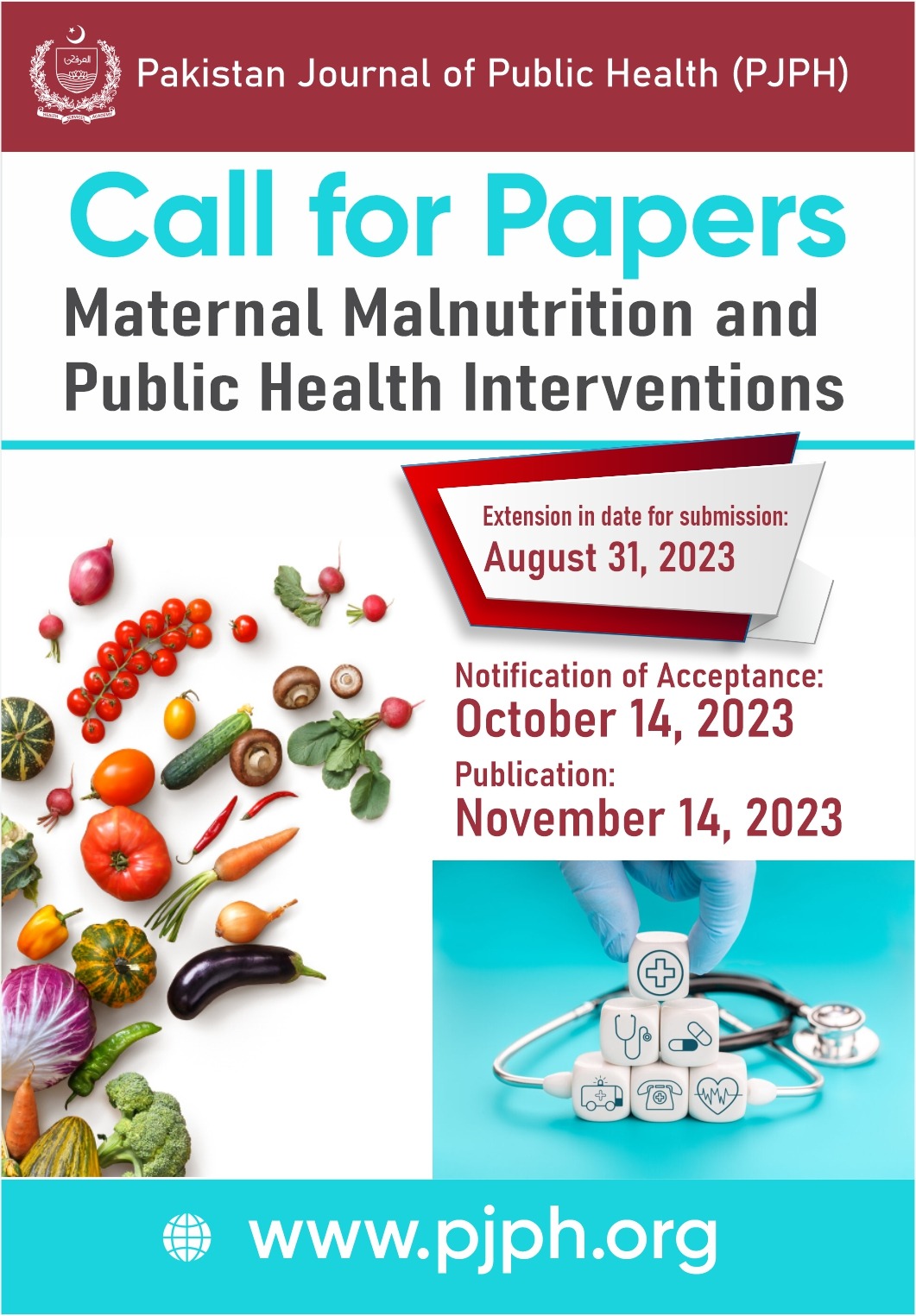ASSESSMENT OF KNOWLEDGE, ATTITUDE AND PRACTICES REGARDING DENGUE FEVER AMONG ADULT POPULATION OF DISTRICT DIR LOWER, KHYBER PAKHTUNKHWA, PAKISTAN
DOI:
https://doi.org/10.32413/pjph.v7i2.35Keywords:
Knowledge, preventive practices, mosquito borne diseases, low and middle income countryAbstract
Background: Dengue is a major public-health concern throughout globe especially tropical and sub-tropical regions. Dengue fever is transmitted by bite of female mosquito caused by human viral pathogen that belongs to the genus Flavivirus of the family Flaviviridae. World Health Organization (WHO) estimates that 50-100 million dengue infections occur each year and that almost half the world's population lives in countries where dengue is endemic. The first confirmed dengue hemorrhagic fever outbreak in Pakistan occurred in 1994. Since then, epidemics of dengue fever have been reported in the region with increasing frequency and expanding geographic distribution.
Objectives: To assess the knowledge, attitudes and preventive practices regarding dengue fever among adult population.
Methods: This study was a Cross sectional descriptive survey conducted among adult population in Union council Ouch and Chakdarah district Dir Lower, KPK province Pakistan. The study was collected in the months of October to December 2015. Sample size was calculated through sample size formula calculation and total of 419 subjects including male and females were interviewed using a pre-tested structured questionnaire selected through simple random sampling technique.
Results: Majority of study population were males (79.3%) and living in houses made of bricks (68.3%). Majority of population was unaware regarding dengue fever transmission, its sign and symptoms and treatment (58.9%). Respondents' main source of information was TV and radio. The study participants consider dengue as a fatal disease and the preventive practices from mosquito bite were recorded as, full clothing (24.4%) followed by use of repellents (10%). Around half of the respondents were using bed net for dengue prevention in which 36% got it from various NGOs working in the district.
Conclusion: There is lack of knowledge about dengue fever among the communities. Preventive practices can be improved by increasing knowledge and its translation into sustainable practices.






